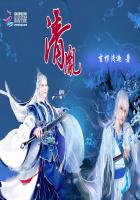"And Elijah came unto all the people, and said, How long halt ye between two opinions? if the Lord be God, follow him: but if Baal, then follow him.And the people answered him not a word.Then said Elijah unto the people, I, even I only, remain a prophet of the Lord; but Baal's prophets are four hundred and fifty men.Let them therefore give us two bullocks; and let them choose one bullock for themselves, and cut it in pieces, and lay it on wood, and put no fire under; and I will dress the other bullock, and lay it on wood, and put no fire under: and call ye on the name of your gods, and I will call on the name of the Lord: and the God that answereth by fire, let him be God.And all the people answered and said, It is well spoken.And Elijah said unto the prophets of Baal, Choose you one bullock for yourselves, and dress it first; for ye are many; and call on the name of your gods, but put no fire under.And they took the bullock which was given them, and they dressed it, and called on the name of Baal from morning until noon, saying, O Baal, hear us.But there was no voice, nor any that answered.And they leaped upon the altar which was made.And it came to pass at noon, that Elijah mocked them, and said, Cry aloud; for he is a god; either he is talking, or he is pursuing, or, he is in a journey, or peradventure he sleepeth, and must be awakened.And they cried aloud,and cut themselves after their manner with knives and lancets, till the blood gushed out upon them.And it came to pass, when midday was past, and they prophesied until the time of the offering of the evening sacrifice, that there was neither voice, nor any to answer, nor any that regarded.And Elijah said unto all the people, Come near unto me.And all the people came near unto him.And he repaired the altar of the Lord that was broken down.And Elijah took twelve stones, according to the number of the tribes of the sons of Jacob, unto whom the word of the Lord came, saying, Israel shall be thy name.And with the stones he built an altar in the name of the Lord; and he made a trench about the altar, as great as would contain two measures of seed.And he put the wood in order, and cut the bullock in pieces, and laid him on the wood, and said, Fill four barrels with water, and pour it on the burnt sacrifice, and on the wood.And he said, Do it the second time.And they did it the second time.And he said, Do it the third time.And they did it the third time.And the water ran round about the altar; and he filled the trench also with water.And it came to pass at the time of the offering of the evening sacrifice, that Elijah the prophet came near, and said, Lord God of Abraham, Isaac, and of Israel, let it be known this day that thou art God in Israel, and that I am thy servant, and that I have done all these things at thy word.Hear me, O Lord, hear me, that this people may know that thou art the Lord God, and that thou hast turned their heart back again.Then the fire of the Lord fell, and consumed the burnt sacrifice, and the wood, and the stones, and the dust, and licked up the water that was in the trench.And when all the people saw it, they fell on their faces: and they said, The Lord, he is the God; the Lord, he is the God."That is not simply a dramatic event; that is a striking telling of it.It is more than a narrative.In narrative literature the scene is accepted as already constructed.In dramatic literature such appeal is made to the imagination that the reader reconstructs the scene for himself.We are not told in this how Elijah felt, or how he acted, nor how the people as a whole looked, nor the setting of the scene; but if one reads it with care it makes its own setting.The scene constructs itself.
The dramatic style does not prevail at most important points of theScripture, because it is a fictitious style for the presenting of truth.It inevitably suggests superficiality.Things actually do not happen in life as they do in drama.
One of our latest biographers says that a scientific historian is always suspicious of dramatic events.[1] They may be true, but they are more liable to be afterthoughts, like the bright answers we could have made to our opponents if we had only thought of them at the time.You never lose the sense of unreality in the very construction of a drama.Life cannot be crowded into two or three hours, and justice does not come out as the drama makes it do.So that at most important points of the Scripture dramatic writing does not appear.The account of the carrying away into captivity of the children of Israel is at no point dramatic, though you can see instantly what a great opportunity there was for it.It is simply narrative.It is noticeable that none of the accounts of the crucifixion is at all dramatic.They are all simply narrative.The imagination does not immediately conjure up the scene.There may be two reasons for that.One is that there are involved several hours in which there is no action recorded.The other is that by the time the accounts were written the actual events were submerged in importance by their unworded meaning.The account of the conversion of Paul, on the other hand, brief as it is, has at least minor dramatic elements in it.On the whole, the Old Testament is far more dramatic than the New.
[1] McGiffert, Life of Martin Luther.
There is even less of the oratorical element in the Scripture.There is, to be sure, a considerable amount of quotation, and men do speak at some length, but seldom oratorically.The prophetical writings are generally too fragmentary to suggest oratory, and the quotations in the New Testament, especially from the preaching of our Lord, are evidently for the most part excerpts from longer addresses than are given.There are few of the statements of Paul, as in the 26th chapter of Acts, which could be delivered oratorically; but here again the Old Testament is more marked than the New.The earliest specimen of oratory is also one of the finest specimens.It is in the 44th chapter of Genesis, and is the account of Judah's reply to his unrecognized brother Joseph:
"Then Judah came near unto him, and said, O my lord, let thy servant, I pray thee, speak a word in my lord's ears, and let not thine anger burn against thy servant: for thou art even as Pharoah.My lord asked his servants, saying, Have ye a father, or a brother? And we said unto my lord, We have a father, an old man, and a child of his old age, a little one; and his brother is dead, and he alone is left of his mother, and his father loveth him.And thou saidst unto thy servants, Bring him down unto me, that I may set mine eyes upon him.And we said unto my lord, The lad cannot leave his father: for if he should leave his father, his father would die.And thou saidst unto thy servant, Except your youngest brother come down with you, ye shall see my face no more.And it came to pass when we came up unto thy servant my father, we told him the words of my lord.And our father said, Go again and buy us a little food.And we said, We cannot go down; if our youngest brother be with us, then we will go down: for we may not see the man's face, except our youngest brother be with us.And thy servant my father said unto us, Ye know that my wife bare me two sons: and the one went out from me, and I said, Surely he is torn in pieces; and I saw him not since: and if ye take this also from me, and mischief befall him, ye shall bring down my gray hairs with sorrow to the grave.Now therefore when I come to thy servant my father, and the lad be not with us; seeing that his life is bound up in the lad's life; it shall come to pass, when he seeth that the lad is not with us, that he will die: and thy servants shall bring down the gray hairs of thy servant our father with sorrow to the grave.For thy servant became surety for the lad unto my father, saying, If I bring him not unto thee, then I shall bear the blame to my father for ever.Now therefore, I pray thee, let thy servant abide instead of the lad a bondman to my lord; and let the lad go up with his brethren.For how shall I go up to my father, and the lad be not with me? lest peradventure I see the evil that shall come on my father."That is pure oratory, and it is greatly helped by the English expression of it.Here our King James version is finer than either of the other later versions, as indeed it is in almost all these sections where the phraseology is important for the ear.
We need not go farther.Part of these outstanding characteristics cometo our version from the original, and might appear in any version of the Bible.Yet nowhere do even these original characteristics come to such prominence as in the King James translation; and it adds to them those that are peculiar to itself.















